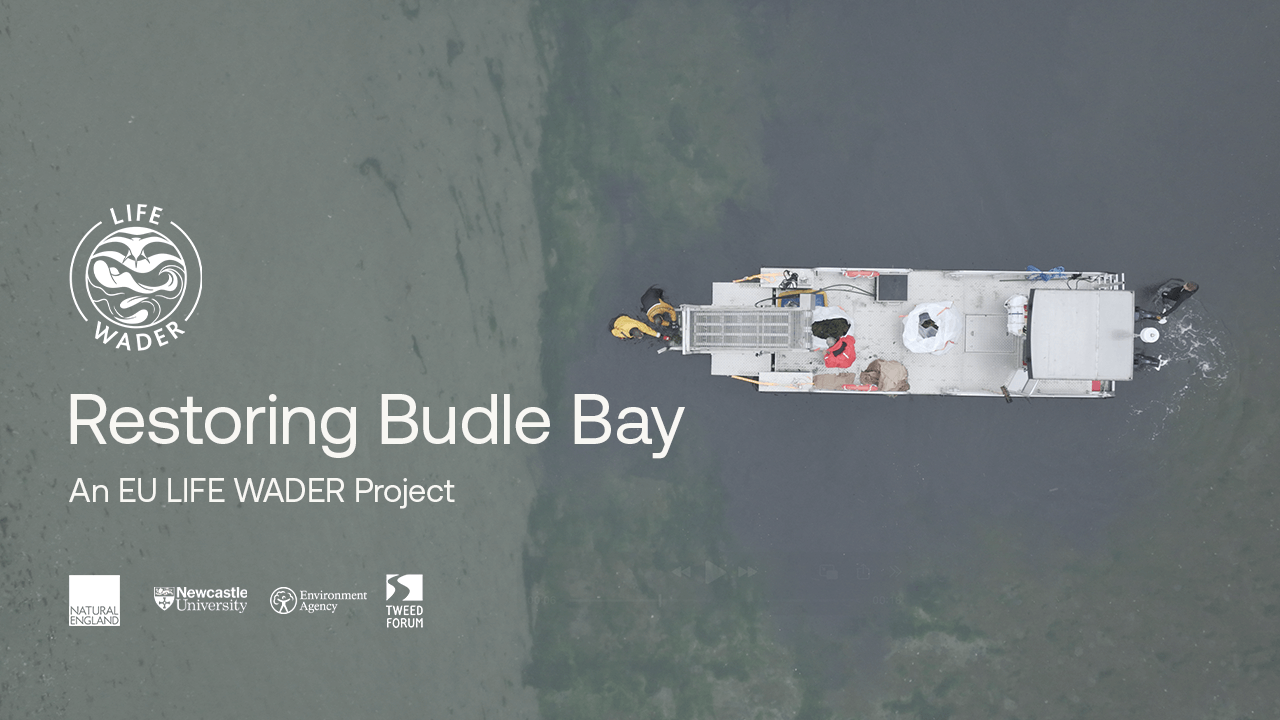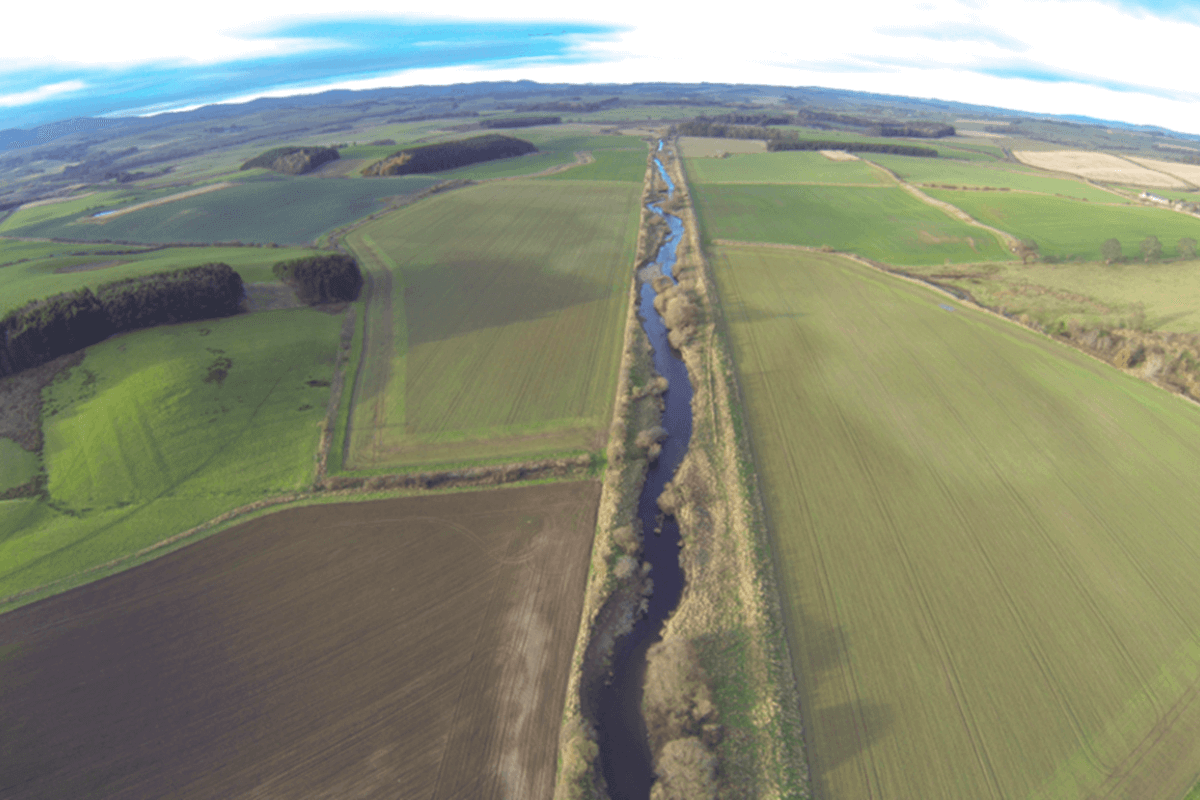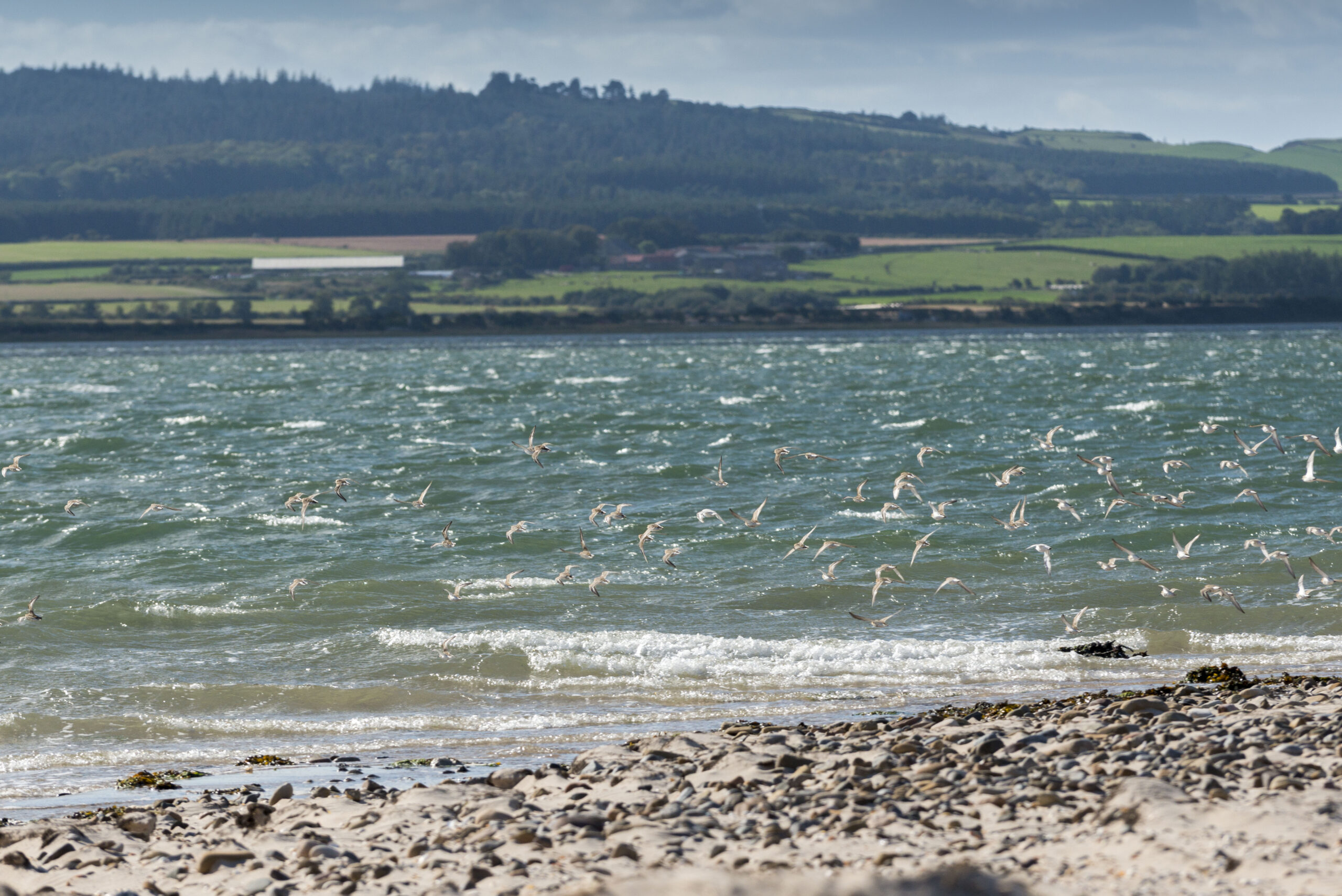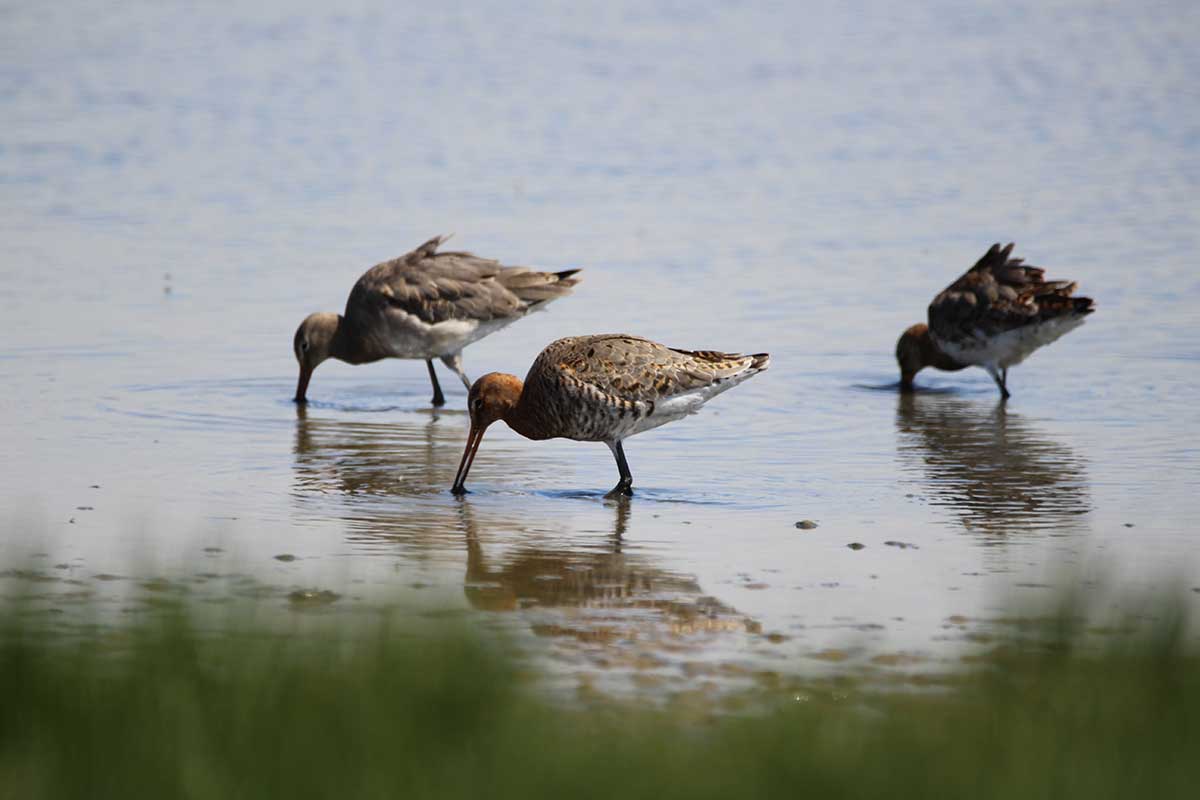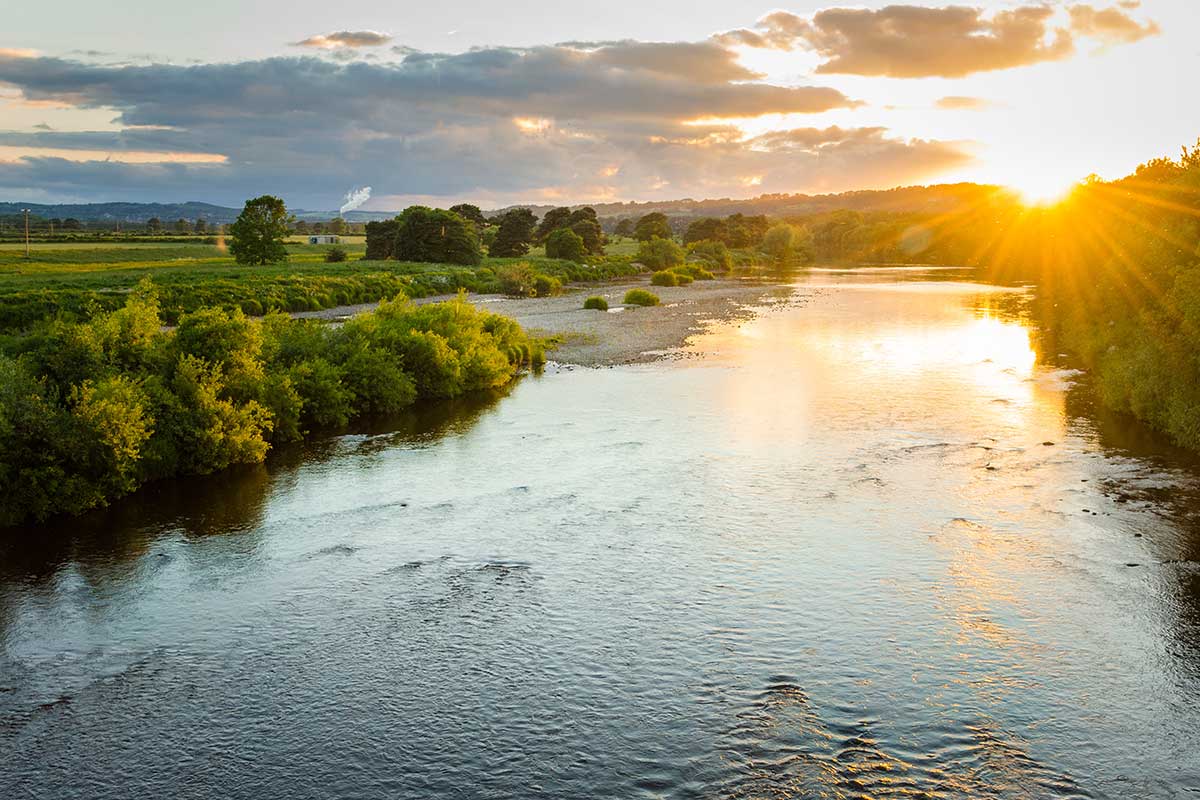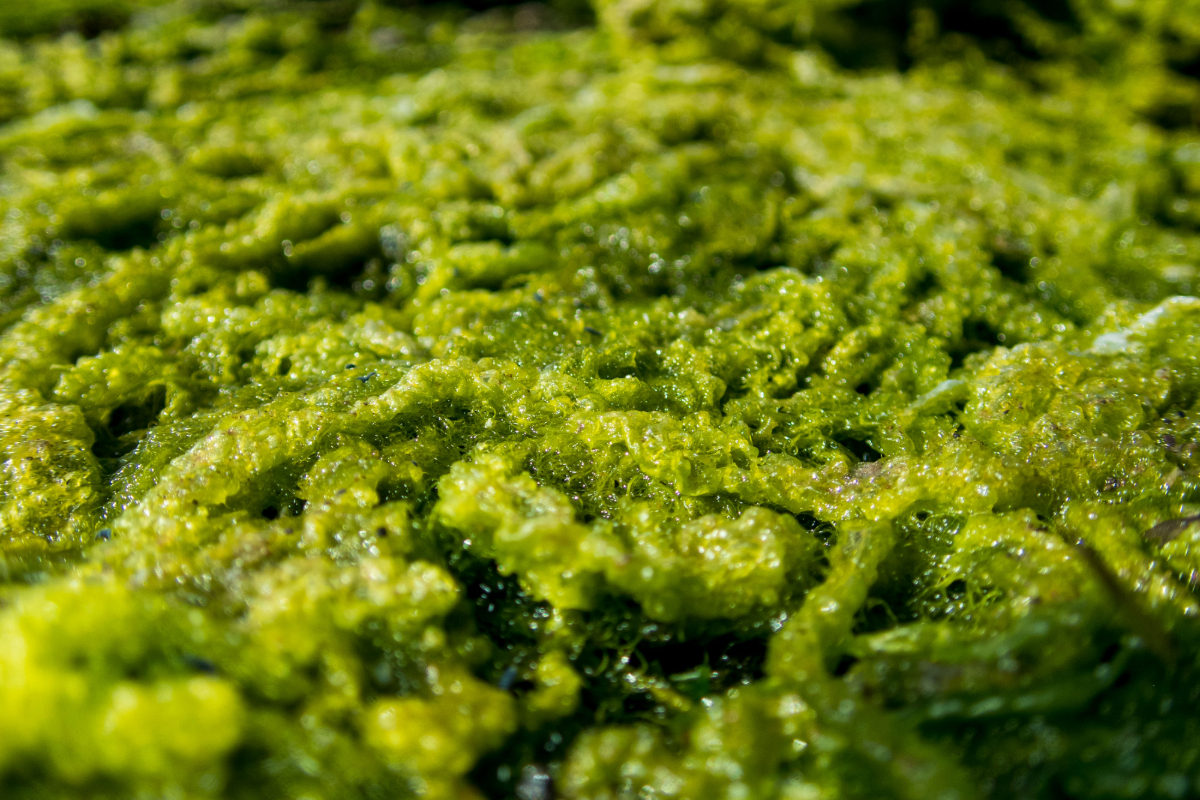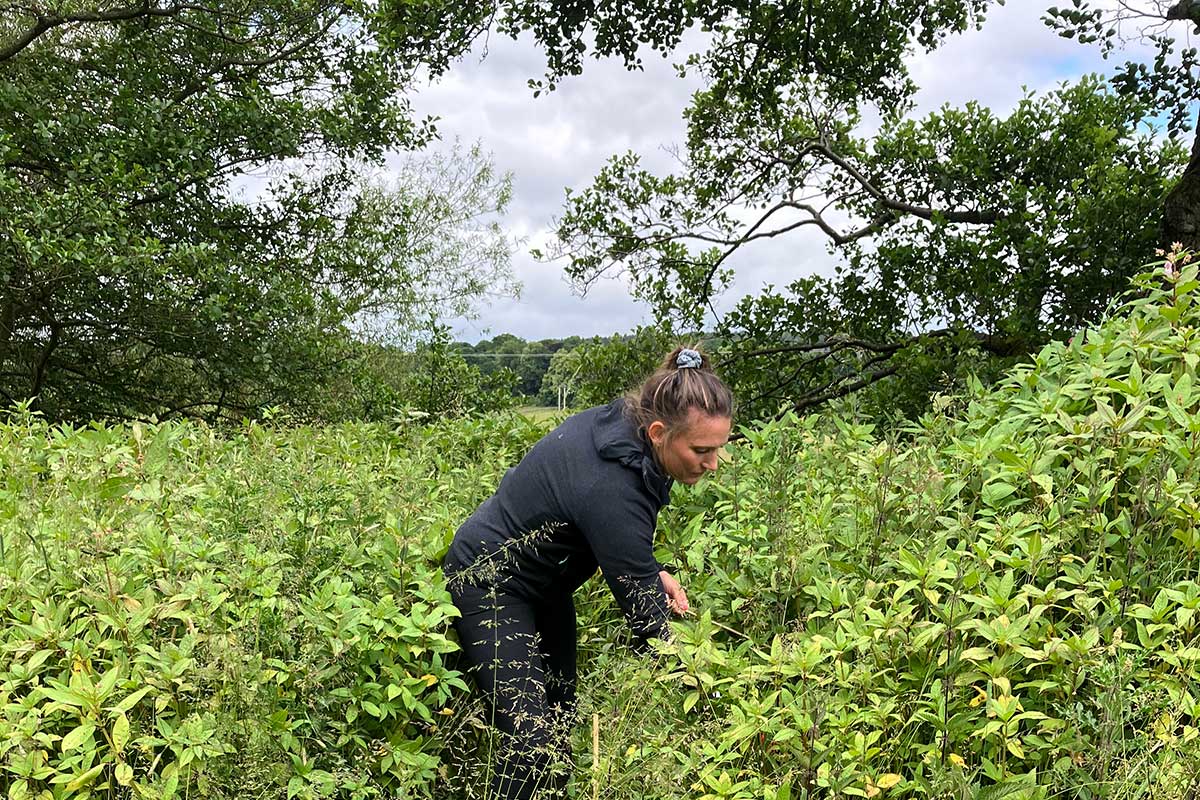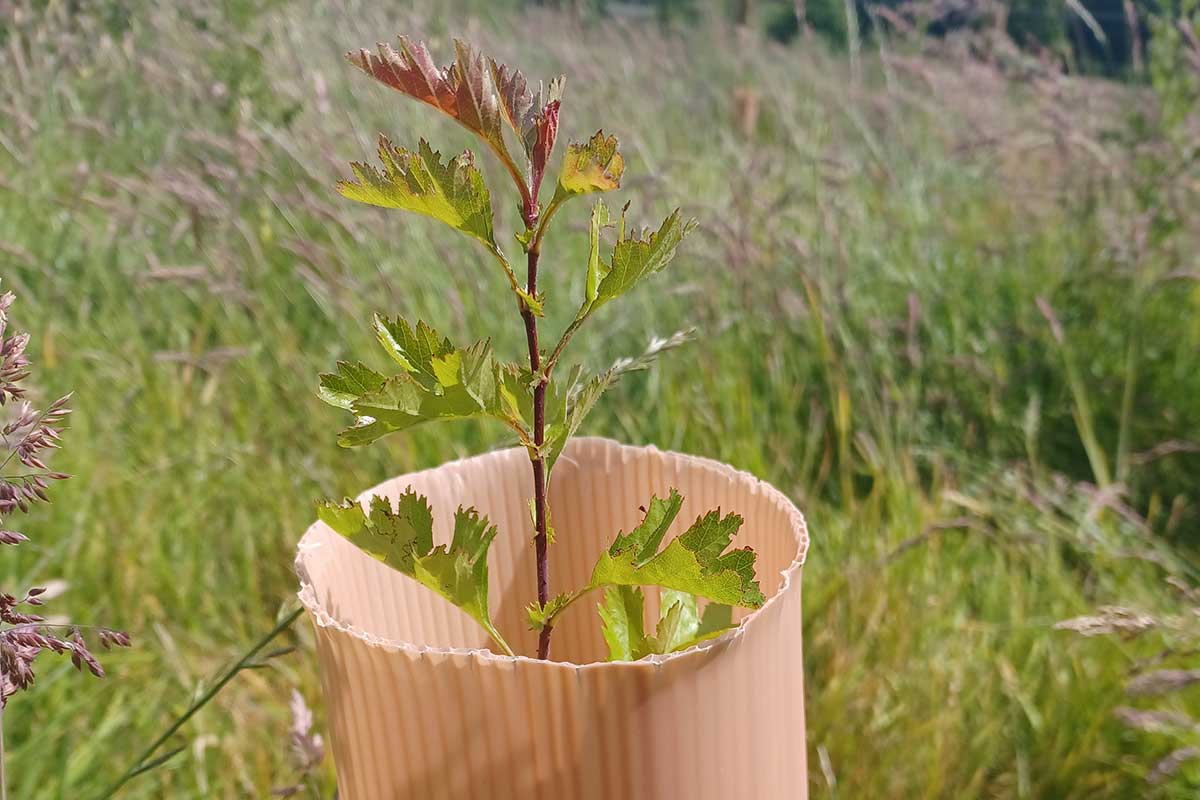This has created a river disconnected from its floodplain leading to a decline in freshwater species, reduced biodiversity and an increased risk of flooding. The Breamish channel is now officially classed as in ‘unfavourable condition’.
The project, led by LIFE WADER involving partnership with the Environment Agency, Natural England, Tweed Forum and the Harehope Estate will work with the River Breamish’s natural processes to restore its connection to the floodplain and deliver a more natural and resilient mosaic of habitats. In particular, a considerable increase in wetland is a major win for nature, and will make the landscape more resilient to climate change.
The Breamish restoration concept has been in development since 2019, with the planning application approved in 2024. Contractors have been appointed and the major construction works began in late May. Work will include excavation and diversion of the river into an historic channel, installation of silt traps, shallow ponds, wetlands, embankment breaches and the construction of woody dams.
It is hoped work will be complete by late Summer 2025. The scale and ambition of the project will be showcased in a film released next year.
The LIFE WADER project is a five-year £5.8m nature recovery project co-funded by the European Union, due for completion in December 2026. WADER (Water and Disturbance Environmental Restoration) is led by Natural England and brings together a range of experts to improve the ecological condition of more than 49,000 hectares of river, coastal and marine habitat and improve water quality within the River Tweed catchment and along the Northumberland Coast.
LIFE WADER Project Manager, Liz Humphreys, said: “Sadly UK rivers are in crisis – with only 14% nationally in good ecological health. Our rivers have been deteriorating for a long time through intensive management and manipulation. Flood embankments, dredging, channel straightening and weir-creation have all reduced floodplain connectivity, removed habitats and obstructed the passage of migratory fish. By taking our cues from nature we can restore natural processes and habitats and bring the river ecosystem back into a state of balance.
Liz added: “This ambitious project will be one of the biggest of its kind in England and we, as part of a collaborative partnership, are excited to be on the vanguard. By working closely at the catchment-scale with the Environment Agency and Tweed Forum as well as the landowner and stakeholders we can accelerate progress toward a sustainable balance between land use and nature-recovery for the long term.”
Jim Heslop, Environment Programme Manager for the Environment Agency in the North East, said: “This exciting project will help return the River Breamish to a dynamic, more natural state and bring a variety of benefits for water quality, habitats and biodiversity. We’re working with the natural processes of the river to bring it back to life.
“This will be one of the largest restoration projects of its kind in the country, ensuring that as well as bringing a boost for wildlife, generations to come can enjoy everything this beautiful river in scenic Northumberland has to offer.”
Tweed Forum CEO, Luke Comins, said: “The Harehope project is a significant part of the ongoing River Till Restoration Strategy, which Tweed Forum has worked on for over a decade. Restoring natural river processes in this part of the catchment will not only support rare and protected species but will also enhance water quality and create a more resilient landscape in the face of climate change. We’re proud to be part of a strong partnership that is revitalising one of the country’s most important river systems.”
